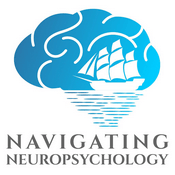No advertising. More Prime.
No advertising. More Prime.
No advertising. More Prime.
No advertising. More Prime.
The podcast starts in
- 0 sec.

185 | Demystifying the Scientific Process in Neuropsychology (Part 3): Scientific Writing – A Conversation With Dr. Steven Paul Woods
184 | Demystifying the Scientific Process in Neuropsychology (Part 2): The Peer Review Process – A Conversation With Dr. Steven Paul Woods
182 | Demystifying the Scientific Process in Neuropsychology (Part 1): How Journals Work – A Conversation With Dr. Steven Paul Woods
181 | Neuropsych Bite: Alzheimer's Disease Research Centers (ADRCs) – A Conversation With Dr. David Wolk



Navigating Neuropsychology